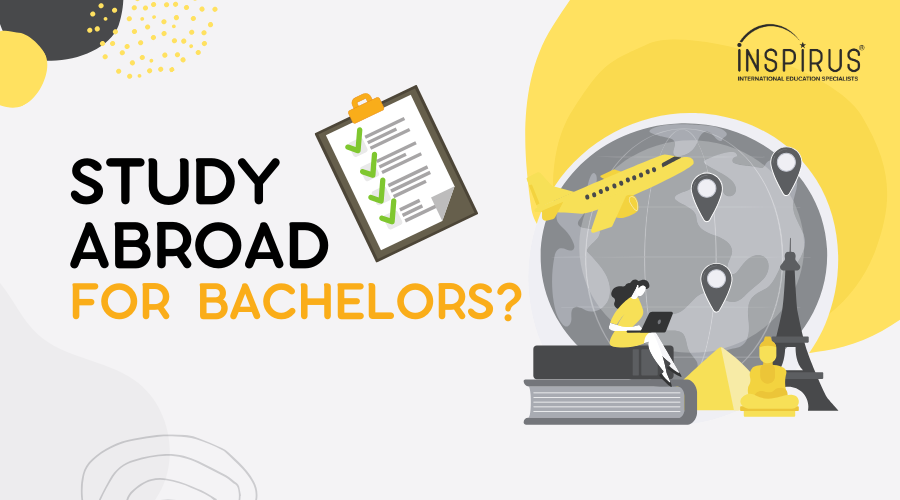As we step into the year 2024 and prepare ourselves to start our college journey in the fall of 2025, global education is undergoing significant transformations, shaping the opportunities and challenges that prospective students face when considering studying abroad for their bachelors. The study abroad landscape is dynamic, with changes in immigration laws, economic conditions, and employment opportunities making it imperative for students and their families to approach study abroad programs with a critical mindset. This article aims to shed light on the evolving nature of studying abroad in 2024, emphasizing key considerations such as changes to Canadian laws and employment difficulties in the US and Europe.

The Changing Dynamics
The year 2024 has brought about unprecedented changes in the global education system. Post-pandemic conditions have accelerated the adoption of online learning, creating a hybrid educational landscape that offers both opportunities and challenges for international students. As countries adapt to the new normal, it is crucial for prospective students to stay informed about the latest developments and carefully assess their options.
Canadian Immigration Laws
Canada has long been a preferred destination for international students, known for its high-quality education and welcoming environment. However, recent changes to Canadian immigration laws may impact the decision-making process for prospective students. In 2024, there has been a shift in policies, with stricter regulations in place. It is essential for students to be well-versed in the latest immigration requirements and understand how these changes may affect their ability to study and work in Canada.
While the Canadian government continues to value international students, the emphasis on ensuring that students contribute to the Canadian economy post-graduation has become more pronounced. Therefore, prospective students must carefully evaluate their chosen programs and assess the potential for gaining valuable skills and experience that align with Canadian workforce needs.


Employment Difficulties in the US and Europe
Traditionally, the United States and Europe have been popular destinations for international students seeking employment opportunities and a diverse cultural experience. However, as of 2024, both regions are grappling with unique challenges that may impact the job prospects for international graduates.
In the United States, changes to immigration policies and a competitive job market have raised concerns among prospective students. It is crucial for students to research industry trends, identify sectors with high demand for skilled professionals, and consider potential visa challenges that may affect their post-graduation plans.
Similarly, Europe is experiencing economic uncertainties, leading to increased competition for jobs and internships. The Brexit aftermath has also introduced new complexities for students looking to study and work in the United Kingdom. As a result, students must be proactive in seeking information about the employment landscape in their chosen European destination and be prepared to adapt to evolving conditions.
Emerging Destinations

A Critical Approach to Decision-Making
In light of the evolving dynamics of studying abroad in 2024, prospective students and their families are advised to adopt a critical approach to decision-making. Key considerations include:
1. Stay informed: Regularly update yourself on the latest developments in the countries you are considering for your studies. Follow reputable sources, consult immigration websites, and engage with educational institutions to stay informed about policy changes.
2. Research Your Program: Evaluate the relevance and quality of the academic programs you are interested in. Consider the program’s curriculum, faculty, and opportunities for practical experience that can enhance your employability post-graduation.
3. Networking and Skill Development: Given the competitive job market, focus on networking and skill development. Engage in internships, participate in industry-related events, and build a professional network that can support your career goals.
4. Financial Planning: Understand the financial implications of studying abroad. Factor in tuition fees, living expenses, and potential changes in currency values. Explore scholarship opportunities and consider alternative funding sources to ensure a financially sustainable education.
5. Consult with Educational Advisors: Seek guidance from educational advisors who can provide insights into the current educational landscape and offer personalized advice based on your academic and career aspirations. Connect with experts like Inspirus Education.
In Conclusion
Studying abroad in 2024 presents a myriad of opportunities and challenges. As the global education landscape continues to evolve, prospective students must approach their decisions with a critical mindset. By staying informed, researching programs, and adapting to changing circumstances, students can navigate the complexities of studying abroad and position themselves for success in an increasingly competitive global job market.


